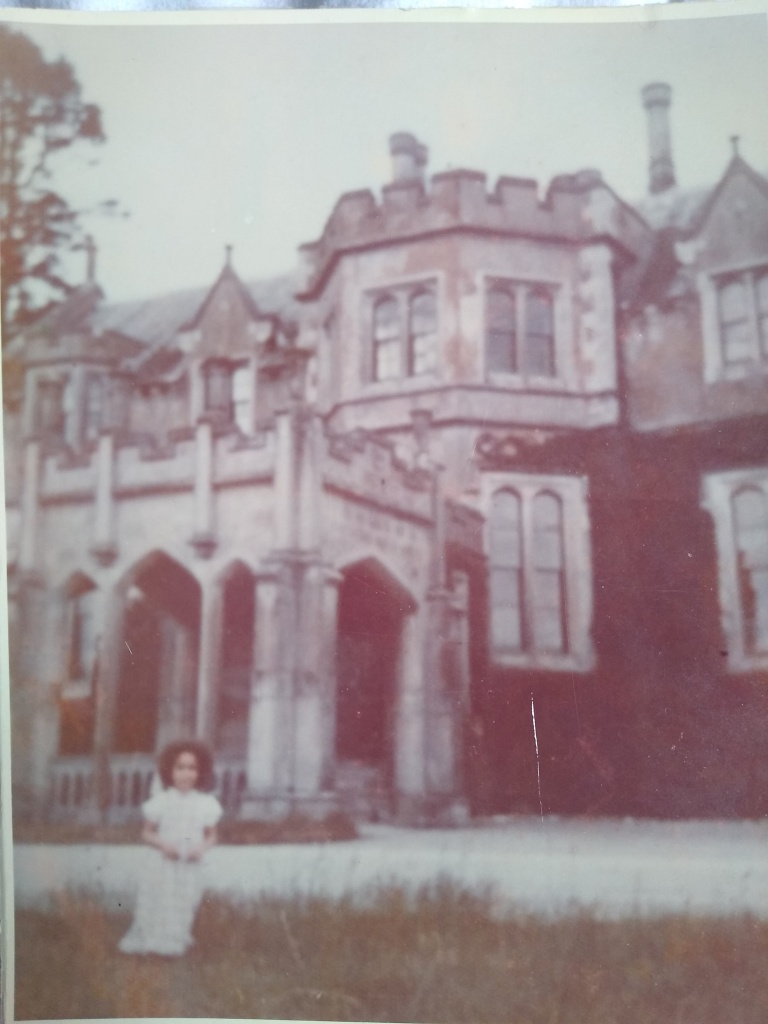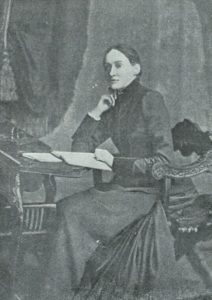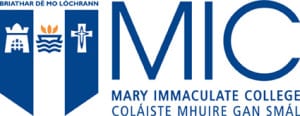Reflections on the lockdown
We asked members to share their experiences of life in lockdown. In these strange times, we wonder, how quarantine is impacting our lives as scholars, students, and academics. Working from home is now the reality for so many globally. New work and research practices had to be put in place quickly, as the pandemic took hold, changing day to day. Universities and institutions changed to online provision, and libraries have been quick to update and extend online access. New professional development classes on virtual learning environments and communication tools like Zoom and Microsoft Teams were rolled out. These measures all necessary to make sure all our citizens are protected.
Read MoreResearch Pioneers 7: Margaret Kelleher
Margaret Kelleher’s first monograph on The Feminization of Famine and her co-edited volume on Gender Perspectives in Nineteenth-Century Ireland, both published in 1997, had gender questions at the very heart of her research. Her seminal work interrogated questions of tradition and canonicity in such influential articles as ‘Charlotte Riddell’s A Struggle for Fame: The Field of Women’s Literary Production’ (2000), ‘Writing Irish Women’s Literary History’ (2001) and ‘“The Field Day Anthology” and Irish Women’s Literary Studies’ (2003). We took the opportunity to ask her about the historiography of Irish women’s literary history and new opportunities for researchers in the digital age.
Read MoreResearch pioneers 6: Gerardine Meaney
The publication in 2002 of The Field Day Anthology of Irish Writing: Women’s Writing and Traditions volumes 4 and 5 was a watershed moment in Irish literary history. Gerardine Meaney was among the principal co-editors of this endeavour, which evolved in response to the failure of the initial three volumes of The Field Day Anthology to dedicate due attention to women’s contribution to Irish literature. Gerardine Meaney is also one of two Irish women to be awarded an ERC Advanced Grant in 2020, the first two women in Ireland, in any discipline, to gain such an award. In addition, she has shaped the field with her monographs on Gender, Ireland and Cultural Change (Routledge, 2010), the co-authored Reading the Irish Woman: Cultural Encounter and Exchange, 1714-1960 (Liverpool University Press, 2013), and extensive list of journal articles and chapters on a range of Irish women writers – including Katherine Cecil Thurston and Emily Lawless – stretching back more than three decades.
Read MoreResearch Pioneers 5: Lucy Collins
Lucy Collins’ Poetry by Women in Ireland: A Critical Anthology 1870-1970, published by Liverpool University Press in 2012, has made a crucial intervention in the field of Irish women’s literary history. As one reviewer described it, it reveals ‘a hitherto hidden history of poetry’ and ‘contradict[s] the received narrative of Irish poetry’. Anthologies form a vital part of recovery work that opens up new avenues for research and reinvigorates teaching practice. We’ve taken the opportunity to ask Collins to reflect on the opportunities and challenges of such critical editing.
Read MoreResearch Pioneers 4: Heidi Hansson
Heidi Hansson’s edited collection New Contexts: Re-Framing Nineteenth-Century Irish Women’s Writing (2007) has been praised by reviewers for its call for the field of literary studies to be augmented and for ‘addressing women’s literature as a “distinct tradition”’. Together with her monograph Emily Lawless 1845-1913: Writing the Interspace, published in the same year, Hansson’s work has been described as ‘the basis for a productive and timely reassessment’ of Irish women’s literature. Here, we ask Hansson, Professor in the Department of Language Studies at Sweden’s Umeå University, about the origins of her interest in Irish literature and what we can learn from studying literary texts from a transcultural perspective.
Read MoreRoots of the Present: Memories of My Grandmother Mary Manning
By Lucien Senna

I remember it vividly, as though it was this past summer. I was only seven years old and it was one of three joyous summers I spent in a house rented by my grandmother Molly Manning. It was a pink Georgian house in Sandycove, overlooking the sea, where my mother, sister, brother and me stayed to be near my grandmother’s house on Herbert Road. Only one particular summer’s day stands out as disturbing. I still have a faded colour photo of it. I am standing in a light pink dress with ruffled short sleeves. My hair is a wild crown of frizzy brown curls and I’m posed hesitantly in front of an imposing grey “castle.” The year was 1976. The “castle” was Glendalough House. It was early August. An avid reader of fairytales, I was eagerly looking forward to this day. Upon arrival, my grandmother’s brother-in-law, “Uncle Bobby” Childers, who married her late sister Christobel, urged me to explore the grounds of his house while the adults sat down to talk. I was living a bygone dream.
Read MoreBetween Two Worlds: Examining “Merry England” as an Outlet for Irish Women Writers
Mary McCartney, University of St. Thomas

In 1885, Katharine Tynan sent a letter to Alice Meynell thanking her for reviewing Tynan’s book Louise de la Vallière and Other Poems in the monthly periodical Merry England (1883–1895). Tynan writes, “It is a beautiful review, and I am glad to have been reviewed by you. […] I value your belief that I am a poet as much” (qtd. in Atkinson 29). Tynan was an Irish nationalist writer who had close ties to W. B. Yeats and was involved in the early years of the Irish Literary Revival. Meynell was a British writer, publisher, and suffragist who co-founded Merry England with her husband Wilfrid in 1883. Most existing scholarship about Merry England is dedicated to the periodical’s contributions to the Catholic Literary Revival, such as Elizabeth Gray’s article “Catholicism and Ideal Womanhood in Fin-de-Siècle Women’s Poetry.” To date, the periodical’s function as a platform for Irish women writers has been largely overlooked. Yet Merry England played an important role in the careers of Irish women writers working in London or submitting work to London publications.
Read MoreIrish Women Writers and the Argosy (1865-1901)
Tove Lilith Conway, University of St. Thomas

The title of the Argosy (1865-1901) conjured up the idea of a ship filled with rich cargo. Indeed, each monthly issue of the magazine offered tales of travel and adventure, along with a steady supply of fiction, poetry, and nonfiction prose. The magazine was initially produced by Alexander Strahan and edited by Isa Craig; however, after the controversial serialization of Charles Reade’s sensation novel Griffith Gaunt (1866), Strahan sold the magazine to London-based novelist Ellen Wood (Ehnes 154). Within three years of her takeover, the magazine’s monthly circulation rose to 20,000. Alvar Ellegård describes the Argosy as “appealing primarily to a genteel, middle-class, lady public, of low to fair educational standard” (17). Yet under Wood’s editorship (1867-87), the magazine addressed complex themes, destabilized gender roles, and upset boundaries between high and low culture (Phegley 187). It also turned readers’ attention to cultures and locales outside the metropolis. It often featured content focused on Irish culture. For example, the Argosy published numerous short stories that ranged in topic from Irish rural landscapes to the Irish peasantry. Irishness was an integral part of the magazine’s identity, themes, writers, and readership.
Read MoreResearch Pioneers 3: James H. Murphy
From the period of his earliest publications, James H. Murphy has been involved in the process of recovering and re-examining largely forgotten Irish works. As one reviewer noted of his Catholic Fiction and Social Reality in Ireland, 1873-1922 (1997), Murphy’s work is consistently the ‘product of considerable and careful research’ into ‘texts many of us never heard of’. Likewise, as another reviewer asserted about his 2011 Irish Novelists and the Victorian Age, Murphy’s intensive research into and surveys of novels by the ‘many forgotten authors’ of that era have been key to the invigoration of research into Irish women’s literary texts. We ask Murphy to reflect on his influential research and recovery efforts here.
Read MoreLetters and the archive: Kate O Brien and Mary O Malley
Dr. Barry Houlihan
The correspondence of writers offers a significant insight into their personal as well as professional lives, revealing much about the networks in which they communicate and circulate ideas. Such archival sources can counter other public and more official sources and narratives including reviews, production histories, publication and publishers’ records, which all give voice to the public reception of a writer, though of course always within the context through which those works were received, distributed, or in some cases also censored and banned. Like other women novelists, playwrights, and writers of her generation, Kate O’Brien was a frequent target of such moral and literary censorship within modern Ireland.
A series of letters between Kate O’Brien and Mary O’Malley, founding director of the Lyric Theatre in Belfast, reveals a neglected exchange that may not be widely known among scholars or fans of O’Brien’s work. Held within the Lyric Theatre/O’Malley Archive at the Hardiman library, NUI Galway, the letters between O’Brien and O’Malley record an exchange over many years between two pioneers in literary form, theatrical production and publishing.
Read More


